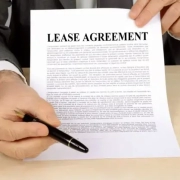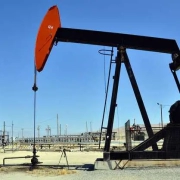Mineral Rights Auctions: Process and Best Practices
Mineral rights auctions play a pivotal role in the acquisition and management of mineral resources. These auctions are not merely transactions but strategic events that shape the development of natural resources such as oil, gas, coal, and precious metals. For investors, landowners, and companies involved in the extraction industry, understanding the auction process and adhering to best practices is crucial for maximizing opportunities and minimizing risks. This comprehensive guide explores the intricacies of mineral rights auctions, including the detailed process and effective strategies for success.
Understanding Mineral Rights and Auctions
Mineral rights refer to the legal rights to explore, extract, and sell minerals from a specific piece of land. These rights can be separated from surface rights, meaning one entity may own the land while another owns the mineral rights beneath it. Auctions are a common method for transferring these rights, offering a structured platform for buyers and sellers to agree on terms and pricing.
In essence, mineral rights auctions are competitive bidding processes where various stakeholders—ranging from private investors and companies to governmental bodies—bid for the opportunity to acquire these valuable rights. The auction process is designed to ensure transparency, fairness, and market-driven pricing.
The Auction Process Explained
The process of a mineral rights auction involves several stages, each critical to the successful transfer of rights and ensuring all parties involved are informed and engaged. Here’s a breakdown of how the process typically unfolds:
Preparation and Announcement
The auction process begins with preparation and announcement. Entities holding mineral rights, such as government agencies or private landowners, prepare detailed information about the rights available for auction. This includes geological surveys, environmental assessments, and legal descriptions of the property.
Auction Listing and Promotion
Once the auction is announced, listings are made public through various channels. This might include online platforms, industry publications, and public notices. Promotion is essential to attract potential bidders, ensuring that the auction reaches interested and qualified parties.
Bidder Registration
Interested parties must register to participate in the auction. Registration usually requires submitting detailed information about the bidder’s qualifications and financial capability. This step ensures that only serious and capable bidders are allowed to participate.
Auction Day
On the day of the auction, the process is conducted either in-person or through an online platform. Bidders place their offers within a specified timeframe. The auctioneer or platform manages the bidding process, ensuring it is conducted fairly and transparently.
Winning Bid and Contractual Agreements
After the bidding concludes, the highest bid is awarded the mineral rights. The winning bidder must then finalize the transaction by signing a contract and fulfilling any financial obligations, such as paying the winning bid amount and applicable fees.
Post-Auction Activities
Following the auction, post-auction activities include transferring the mineral rights to the winning bidder, conducting due diligence, and ensuring compliance with legal and regulatory requirements. This phase also involves addressing any concerns or disputes that may arise.
Best Practices for Successful Participation
Participating in a mineral rights auction requires careful preparation and strategic planning. Here are several best practices to ensure a successful outcome:
Conduct Thorough Research
Before participating in an auction, thorough research is essential. This includes understanding the mineral potential of the property, reviewing geological data, and evaluating the environmental and regulatory considerations. Researching the auction process itself, including terms and conditions, will also prepare you for any requirements and obligations.
Evaluate Financial Implications
Assessing the financial implications of acquiring mineral rights is crucial. This involves not only the bid amount but also additional costs such as drilling, extraction, environmental management, and potential royalty payments. Accurate financial projections and a clear understanding of funding requirements will help you make informed decisions.
Understand the Legal and Regulatory Framework
Mineral rights are subject to various legal and regulatory frameworks, which can vary by location and jurisdiction. Understanding these regulations is vital to ensure compliance and avoid potential legal issues. This includes knowledge of property rights, environmental laws, and industry regulations.
Develop a Strategic Bidding Plan
A well-thought-out bidding strategy is essential for success. This involves setting a maximum bid limit based on your financial analysis and sticking to it. Additionally, consider the timing of your bids and the potential for competitive bidding. Strategic planning helps you avoid overbidding and ensures a focused approach.
Prepare for Due Diligence
Due diligence is a critical step in the auction process. Ensure that all necessary documentation is reviewed, including title deeds, environmental assessments, and lease agreements. Identifying any potential issues or red flags before the auction will help you make informed decisions and mitigate risks.
Consider Collaboration and Partnerships
In some cases, collaborating with other entities or forming partnerships can enhance your chances of success. This approach allows for shared expertise, resources, and risk mitigation. Joint ventures or consortiums can be particularly beneficial for larger or more complex auctions.
Monitor Market Trends
Staying informed about market trends and industry developments is crucial. This includes tracking commodity prices, technological advancements, and changes in regulatory policies. Market trends can influence the value of mineral rights and impact your bidding strategy.
Leverage Technology
Utilizing technology can streamline the auction process and provide valuable insights. Online bidding platforms, data analytics tools, and geographic information systems (GIS) can enhance your ability to participate effectively and make informed decisions.
Prepare for Post-Auction Responsibilities
Winning an auction comes with responsibilities. Be prepared to manage post-auction obligations, including contract finalization, financial payments, and compliance with legal and regulatory requirements. Effective post-auction management ensures a smooth transition and successful utilization of the acquired mineral rights.
Case Studies and Examples
Examining real-world examples can provide valuable insights into the mineral rights auction process and best practices. Case studies of successful auctions highlight effective strategies, common pitfalls, and lessons learned. These examples offer practical guidance and inspire best practices for future auctions.
Mineral rights auctions are complex and highly regulated events that offer significant opportunities for acquiring valuable resources. Understanding the detailed process and adhering to best practices are crucial for success. From thorough research and financial analysis to strategic bidding and post-auction management, each step plays a vital role in achieving favorable outcomes.
By following the outlined best practices and leveraging insights from case studies, participants can navigate the auction process more effectively. Embracing technology, staying informed about market trends, and preparing for both pre- and post-auction responsibilities will enhance your ability to secure valuable mineral rights and achieve long-term success in the industry.
If you have further questions related to Mineral Rights Auctions, feel free to reach out to us here.












Leave a Reply
Want to join the discussion?Feel free to contribute!